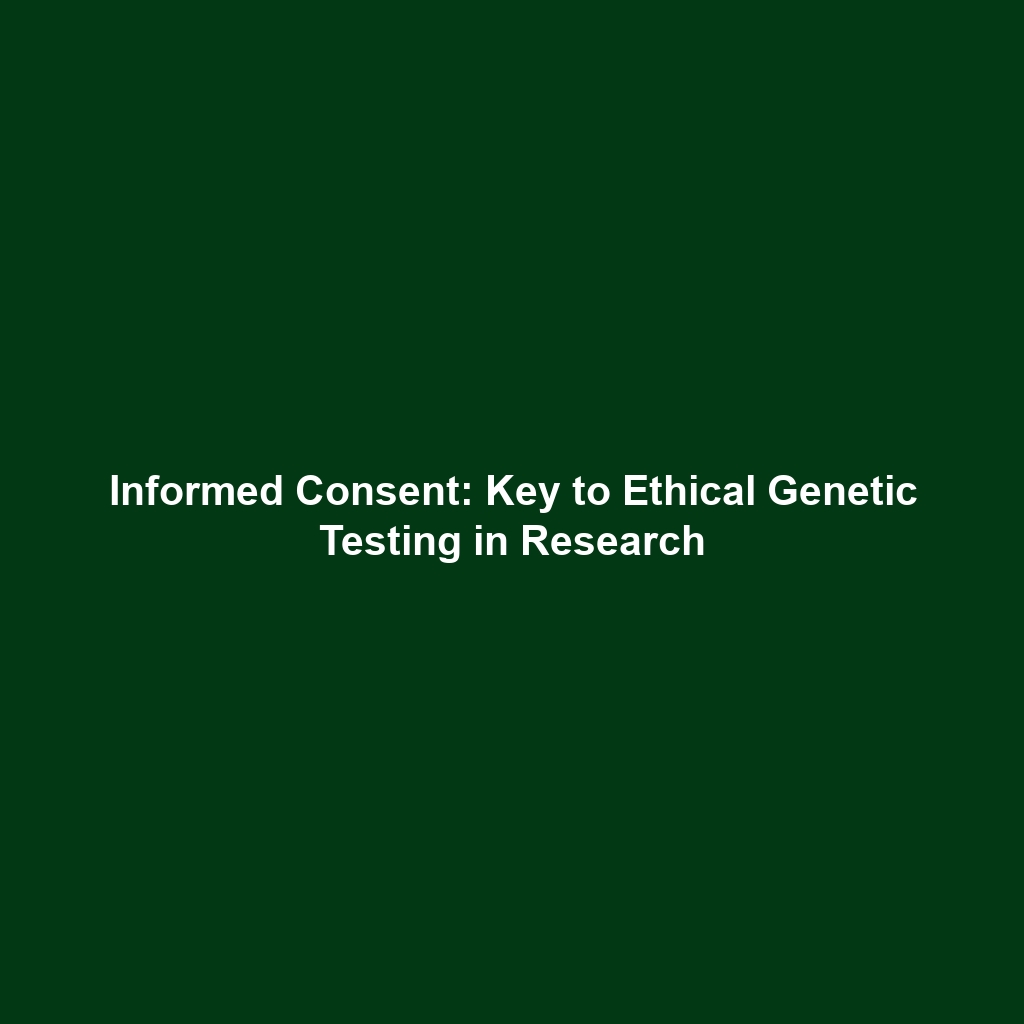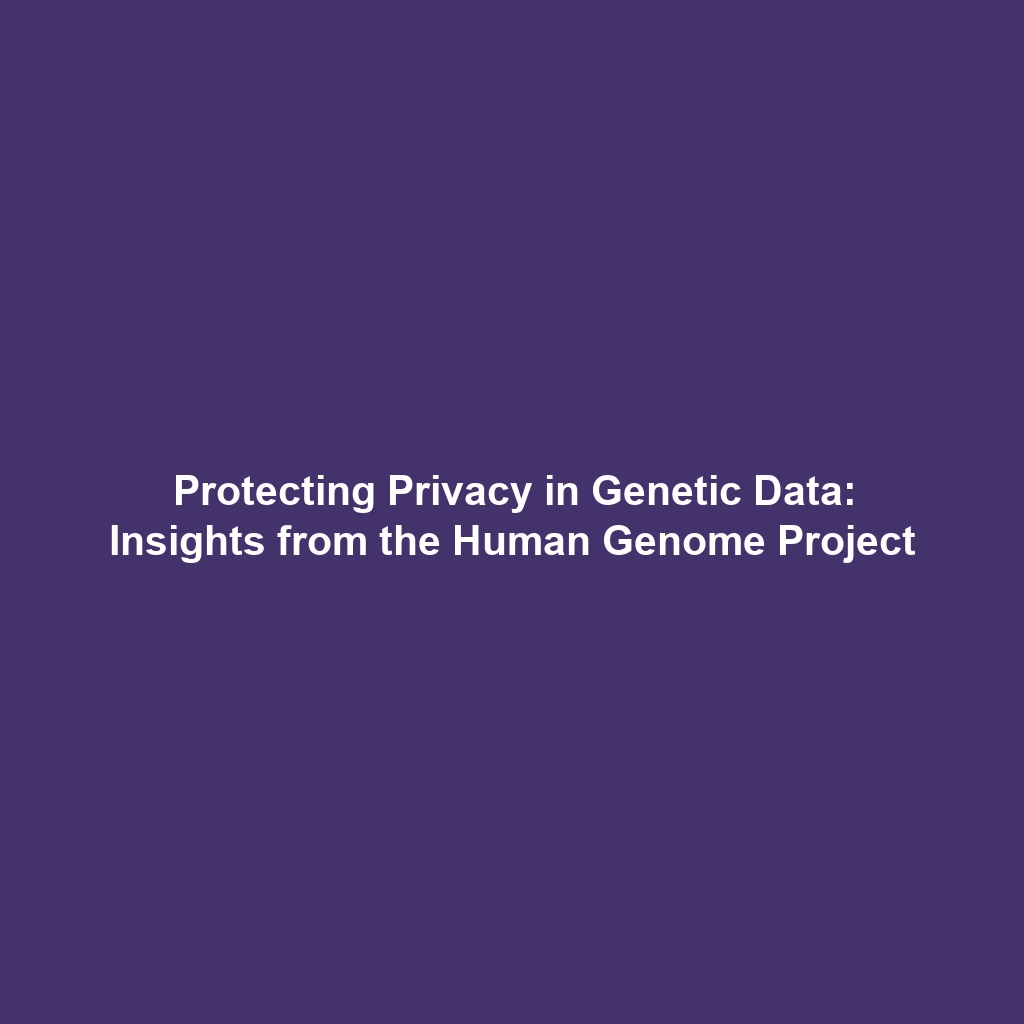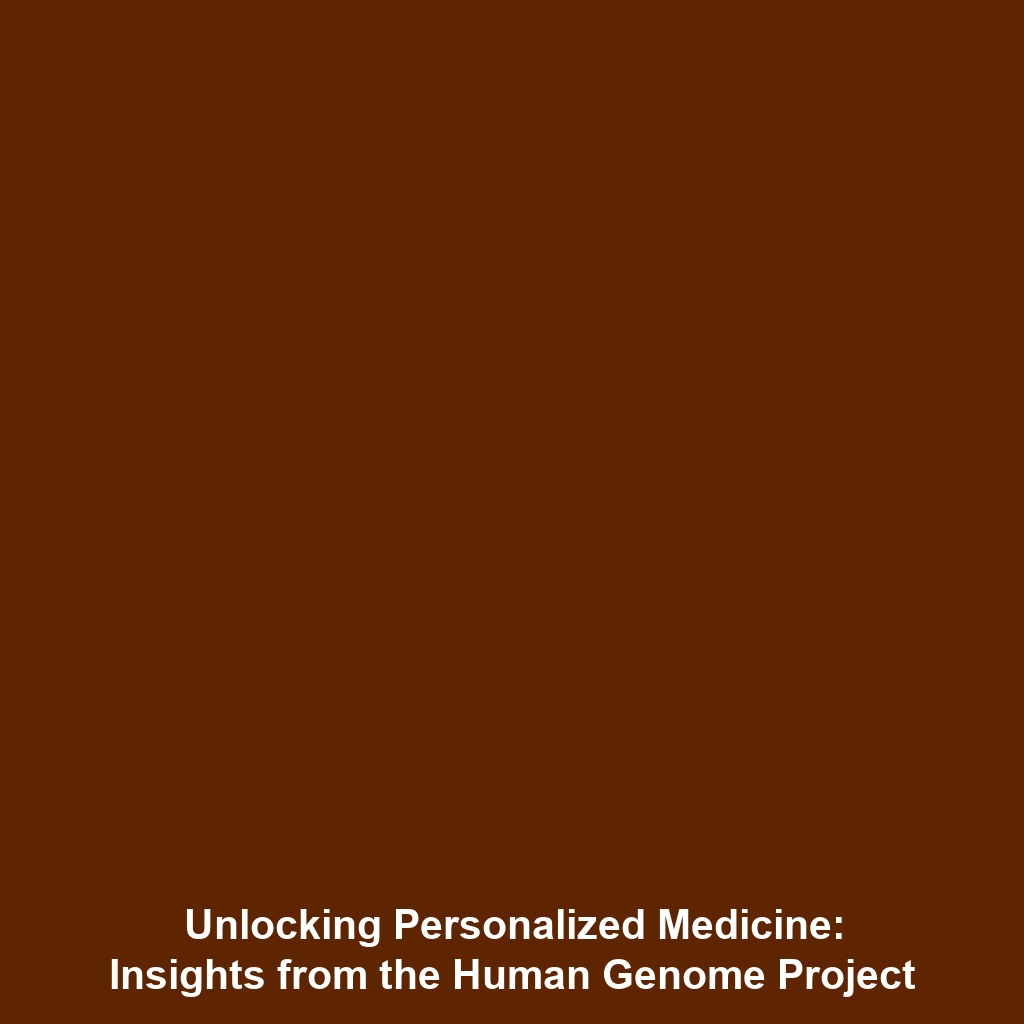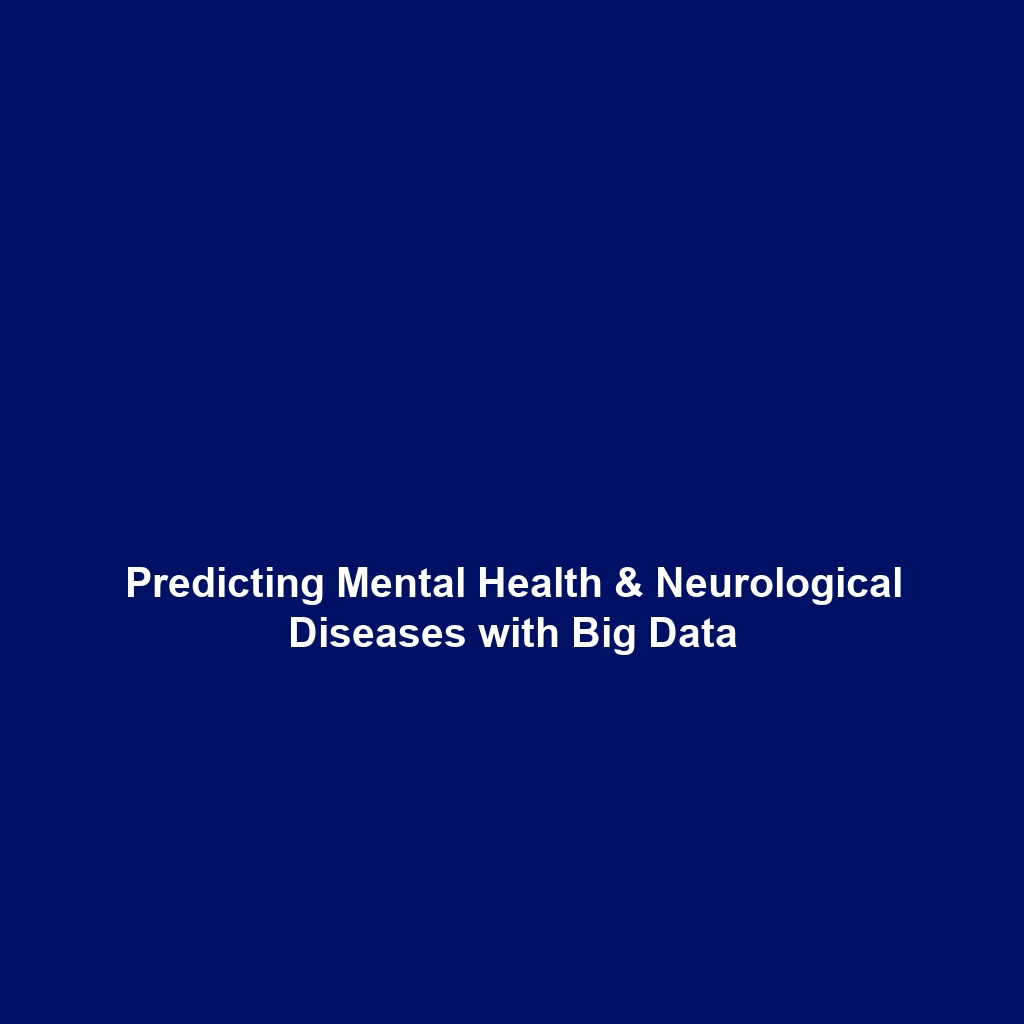The Role of Informed Consent in Genetic Testing and Research Participation
Introduction
The role of informed consent in genetic testing and research participation is a critical component of ethical clinical practice and research methodologies. As genomics and personalized medicine advance, particularly in the wake of the Human Genome Project, the process of obtaining informed consent has evolved significantly. This article explores its importance, outlining how understanding and respecting the rights of participants ensures that scientific advancements are achieved ethically.
Key Concepts
Understanding Informed Consent
Informed consent is the process through which researchers provide potential participants with comprehensive information about a study, allowing them to make educated decisions regarding their involvement. Major concepts include:
- Voluntariness: Participation must be voluntary and free from coercion.
- Comprehension: Participants should fully understand the study, including potential risks and benefits.
- Disclosure: All relevant information, including the research purpose and data usage, needs to be disclosed.
These principles are particularly pertinent in the context of the Human Genome Project, where genetic data could lead to significant implications for individuals and families.
Applications and Real-World Uses
The role of informed consent in genetic testing and research participation is vital in various applications:
- Clinical Trials: Ensuring that participants are aware of their rights during genetic research projects, as seen in studies stemming from the Human Genome Project.
- Personalized Medicine: Educating patients about how their genetic information will be used to tailor treatments.
- Biobanking: Participants consenting to the use of their genetic material in future research, illustrating trust in the research community.
These applications highlight how informed consent is essential for ethical practices in genetics.
Current Challenges
While informed consent is a necessary aspect of genetic research, it faces several challenges:
- Complexity of Genetic Information: Many participants may struggle to understand the intricacies of genetic data.
- Rapid Technological Advancements: Keeping consent forms up to date with evolving research can be difficult.
- Trust Issues: Historical abuses in medical research contribute to skepticism among potential participants.
These challenges indicate the need for ongoing improvements in the informed consent process and address issues in the Human Genome Project.
Future Research and Innovations
Looking ahead, innovations aim to enhance the informed consent process, including:
- Digital Consent Platforms: Tools that provide real-time updates and allow participants to review and modify their consent.
- AI and Genetic Counseling: Technologies that help explain complex genetic information in understandable terms.
- Community Engagement Programs: Initiatives that build trust and facilitate better communication regarding research participation.
Such advancements signify a commitment to maintaining ethical standards while fostering research in the Human Genome Project.
Conclusion
In summary, the role of informed consent in genetic testing and research participation is paramount in ensuring ethical integrity in scientific inquiry, especially within the context of the Human Genome Project. Understanding the principles of informed consent is essential to uphold participant rights and promote trust in genetic research. As we continue to advance in our knowledge of genetics, ongoing dialogue and research into consent practices will become increasingly vital. For further reading, check out our articles on ethical considerations in genetic research and the future of genetics and personalized medicine.




